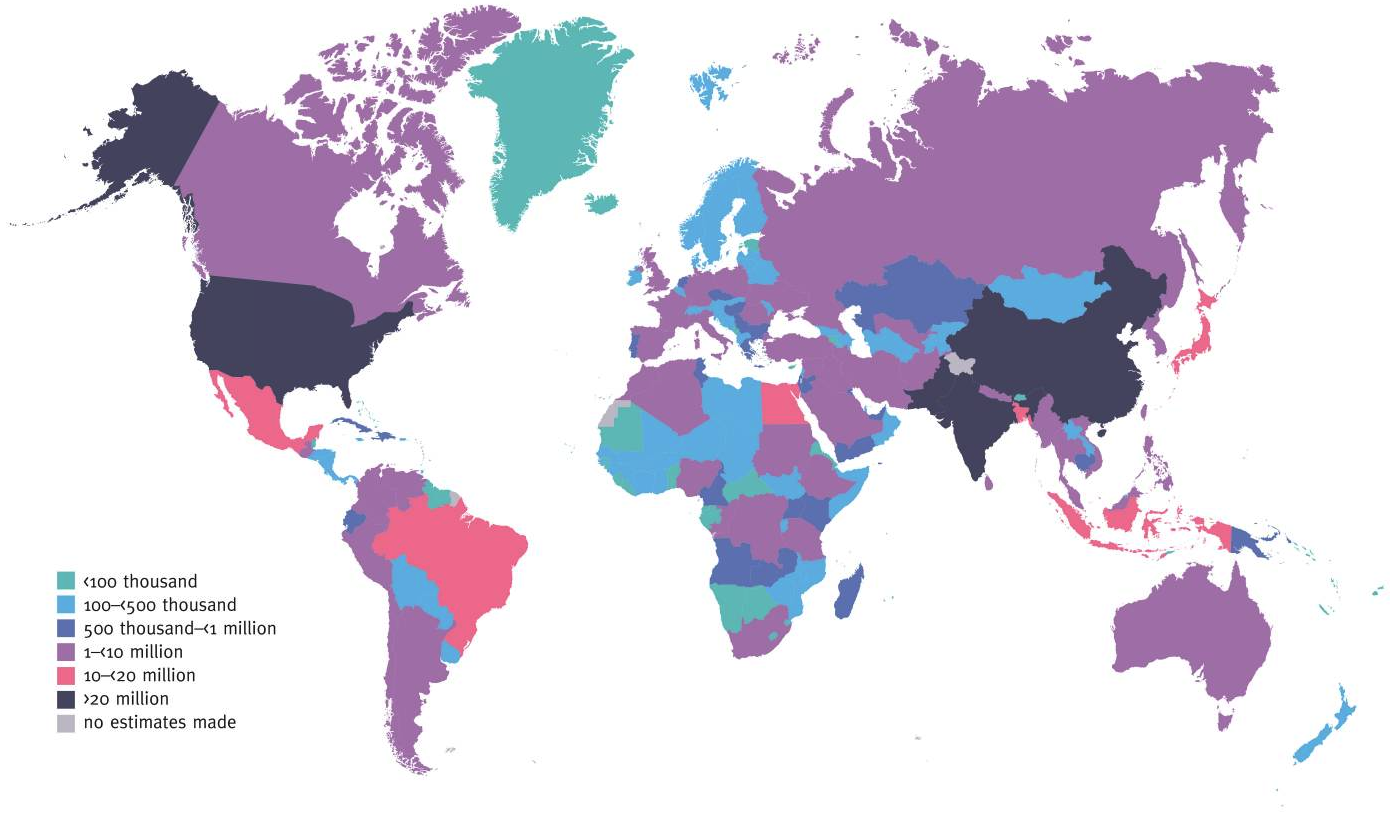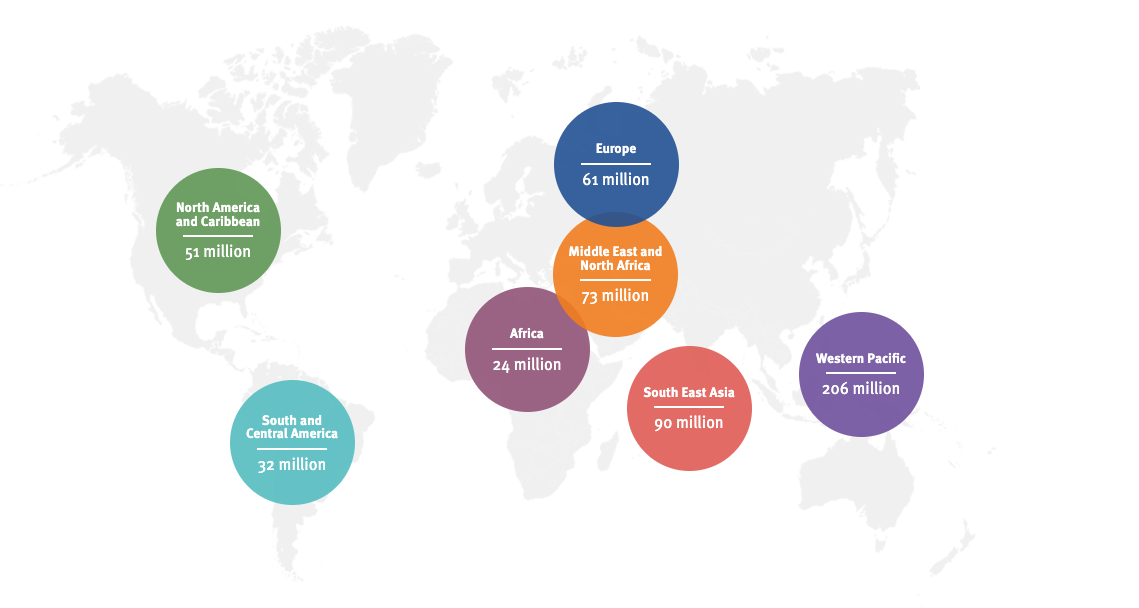The consumption of sugar has been a subject of concern globally due to its adverse effects on health. Sugar can cause obesity, type 2 diabetes, and cardiovascular diseases. Excessive consumption of processed foods and an increase in the worldwide consumption of sugary beverages have led to a rise in the intake of sugars across the population. Yet, some differences relate to the impact sugar has on health as it is influenced by race, geographical location, and diet. These factors, coupled with lifestyle choices, determine how different groups of people handle sugar and the risks associated with it (Valenzuela, 2021).
Additional Insights:
Beyond processed foods, fructose, a common sugar found in sugary drinks, has been shown to play a particularly harmful role in promoting fatty liver disease and visceral fat. , Both also are closely linked to insulin resistance and metabolic disorders. Recent studies suggest that reducing fructose intake specifically, rather than overall sugar, may be a more targeted approach to managing metabolic health (Stanhope, 2016).

Understanding Sugar and Its Relation to Health
Sugar is a type of monosaccharide present in fruits, vegetables, and milk products. However, the health problems associated with sugar intake are more due to added sugar in processed foods, beverages, and candies (Valenzuela, 2021). While fatty foods supply energy in the form of fatty acids, carbohydrates provide glucose, which increases fats in the body, insulin levels, and the likelihood of metabolic diseases. Currently, the World Health Organization (WHO) suggests that only 10% of daily energy intake should come from added sugars, though many countries and territories exceed this limit (Tahmassebi, 2020).
Additional Insights:
The American Heart Association (AHA) has even stricter guidelines, recommending that women consume no more than 25 grams (6 teaspoons) of added sugar per day, while men should limit their intake to 36 grams (9 teaspoons). However, the average American consumes 77 grams of added sugar daily, nearly three times the recommended amount (AHA, 2020). The long-term impact of this excess sugar consumption is not only linked to weight gain but also to chronic inflammation, which can be a precursor to many degenerative diseases, including Alzheimer’s and certain cancers (Ruiz-Núñez et al., 2013).
Sugar and Health: A Racial Standpoint
There is variation in how races metabolize sugar and how susceptible they are to diseases associated with sugar. Available evidence suggests that the incidence of type 2 diabetes and obesity is significantly higher in Black and Hispanic populations compared to other groups. For instance, African Americans are about 1.5 times more likely to develop diabetes in the United States than non-Hispanic whites (Kumar, 2020). This is due to genetic factors and socioeconomic differences, including poorer access to health care, education, and nutrition.
Additional Insights:
Recent genetic studies have uncovered specific alleles in certain populations, such as African Americans and Latinos, that predispose them to insulin resistance and impaired glucose tolerance. The gene variants associated with these populations, such as TCF7L2, have a strong correlation with type 2 diabetes (Grant et al., 2006). Furthermore, diet, combined with these genetic predispositions, exacerbates their vulnerability to sugar-related diseases.
Geography and Sugar Consumption

The role of geography in sugar consumption and its effects on health cannot be underestimated. In the United States, Canada, and the United Kingdom, people consume high levels of sugar, and these countries rank high for sugar intake (Kumar, 2020). For example, the U.S. is known for its high consumption of sugary soft drinks and processed snacks, contributing to obesity and type 2 diabetes.
Additional Insights:
In contrast, Nordic countries have relatively low levels of sugar consumption, in part due to policies that limit sugar in processed foods and the promotion of whole-food diets rich in fiber and natural fats. These dietary habits are closely aligned with lower rates of diabetes and obesity, suggesting that government policy plays a significant role in shaping public health outcomes (Lindström, 2006).
The Dependence of Food on Sugar and Connected Health Problems
Dietary habits significantly influence how sugar affects people across different ages and genders. In Western nations, the issues related to sugar stem from the consumption of sugary snacks, drinks, and desserts. This hidden sugar contributes to the rising rates of obesity and diabetes, particularly among low-income groups who have less access to whole foods (Valenzuela, 2021).
Additional Insights:
Research indicates that early exposure to high-sugar diets during childhood can lead to lifelong cravings for sugary foods and a higher risk of developing metabolic diseases later in life. Moreover, women tend to have more fluctuations in blood sugar levels due to hormonal changes associated with menstruation, pregnancy, and menopause, which can amplify the effects of sugar on health (Mauvais-Jarvis, 2017). Strategies aimed at reducing sugar intake should therefore take into account age and gender-specific health needs.
Gut Health and Sugar Metabolism
Gut health plays a crucial role in how the body processes sugar. Fermented foods like kimchi and miso, which are part of traditional diets in countries like Korea and Japan, can positively affect gut bacteria and regulate blood glucose levels. This supports the growing body of evidence that the gut microbiome significantly influences metabolism and insulin sensitivity.
Additional Insights:
The role of short-chain fatty acids (SCFAs) produced by the fermentation of dietary fibers in the gut has been found to improve insulin sensitivity and reduce the risk of type 2 diabetes. Research is increasingly focused on how probiotic supplementation or dietary interventions can help regulate blood sugar levels, particularly in individuals at high risk of metabolic disorders (Canfora et al., 2015).
Conclusion
Sugar consumption remains a significant global health issue, with differences in how it affects individuals based on race, geography, and diet. By understanding these differences, health professionals and policymakers can create more targeted strategies to address the rising prevalence of obesity, type 2 diabetes, and other metabolic diseases.
| Fact | Details |
|---|---|
| Global Sugar Consumption | Countries like the U.S. rank high in sugar intake, with 30g extra per day. |
| Impact of Sugar on Obesity | High sugar intake linked to obesity, especially in Western nations. |
| Racial Susceptibility to Diabetes | African American & Hispanic populations are 1.5x more likely to develop diabetes. |
| Dietary Differences | Sub-Saharan Africa has lower sugar intake due to traditional diets. |
References:
• American Heart Association (AHA). (2020). “Sugar and Cardiovascular Disease.”
• Canfora, E. E., et al. (2015). “Gut Microbiota, Gut-Derived Metabolites, and the Regulation of Lipid Metabolism.”
• Grant, S. F., et al. (2006). “Variant of Transcription Factor 7-Like 2 (TCF7L2) Gene Confers Risk of Type 2 Diabetes.”
• Lindström, J., et al. (2006). “Diet, Lifestyle, and the Risk of Type 2 Diabetes in Finnish Men and Women.”
• Ruiz-Núñez, B., et al. (2013). “Chronic Inflammation: A Cause of Obesity and Diabetes?”
• Stanhope, K. L., et al. (2016). “Fructose-Induced Fatty Liver and Insulin Resistance.”
• Valenzuela, P. L. (2021). “The Impact of Sugar on Global Health.”
• Yan, Y. (2022). “Geographical Variations in Sugar Consumption and Metabolic Disorders.”


